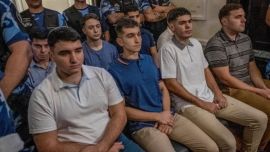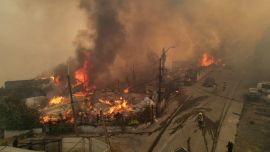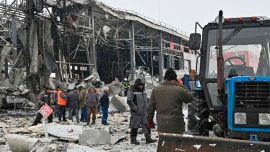Foreign Minister Jorge Faurie declared in a press conference on Monday that the Armed Forces did not intervene in the democratic process in Bolivia. In fact, he stated, military officers merely met with opposition leaders, offered their political opinion about what was happening, and asked for the resignation of Evo Morales. And he said that since no member of the military is a part of the government, there had been no coup d'état.
This is a grave and painful error by part of the minister, especially for a country like Argentina. This country, for example, has suffered multiple interventions by the Armed Forces doing exactly what just happened in Bolivia: intervening in politics, meeting with opposition leaders, and telling a civilian president what he should do.
Democratic countries understand this role for the military is inadmissible. There is no argument that can justify the situation in Bolivia, nor Faurie’s claim that there is no-one in uniform succeeding Morales.
There have been countless coup d’états in which the military participated, without directly taking power afterwards. This doesn’t mean they weren't coups. In Argentina, in 1962, we saw the military denounce a civilian president, Arturo Frondizi. In his place another civilian rose to power – José María Guido. There is no history book, nor politician, though, that does not consider that to have been a coup d’état.
The Argentines who lived through those coups remember – painfully – the silence of many countries when the military rose to power, and those that used words similar to the foreign minister. Calls for a mutual understanding for a future that avoided the clearfully present.
It's understandable that, in general, pragmatism must be enacted in all acts of diplomacy, in order to deal with a nation’s commercial and strategic interests. But what Macrismo is doing here diplomatically is far too risky.
There are themes and issues with which Argentina must not play around with, because it is the region’s leader in the condemnation of any type of military intervention in the civic life of a country. It is more than the sympathy or denial that could be generated by a leader.
Argentina claimed this leadership by showing the world the national wounds left by its dramatic past. We were able to surpass it with the exemplary conviction of the military commanders that ousted a constitutional government in March, 1976.
President Macri and those who surround him must take note of this error and rectify it immediately. Condemning the clear military interference, and accompanying the Organisation of American States (OAS) in its criticism of electoral irregularities the organism detected in the last elections (the OAS considers that the October 27 vote was won by Evo Morales, but not by enough of a difference to avoid a second-round run-off).
The administration must join the OAS in advocating that those elections happen within established timelines. The opposite would constitute a dangerous precedent, as much as for the region as for our country.
Macri should not show himself to be either in favour or against the internal politics that Evo Morales brought to the fore. It should only condemn any type of military intervention and continue with State politics that goes beyond any administration's priorities.



















Comments